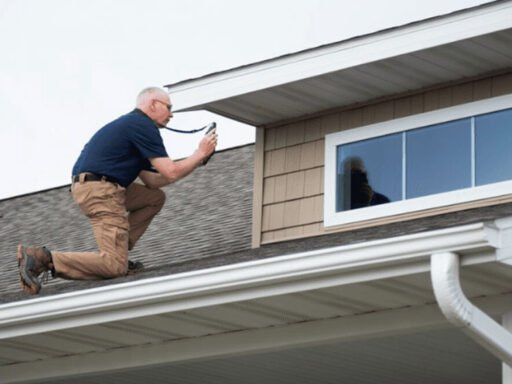Unexpected home repairs can disrupt even the most carefully planned budgets. Whether it’s a burst pipe, a malfunctioning furnace, or a leaky roof, unforeseen repairs can strain your finances.
Implementing smart financial planning strategies can help you better manage these surprises and maintain financial stability. Here’s how to prepare for and handle unexpected home repairs with strategic financial planning.
Build an Emergency Fund
An emergency fund is your first line of defense against unexpected home repairs. It’s a separate savings account dedicated to covering unforeseen expenses. To build an adequate emergency fund, save three to six months of living expenses. This buffer allows you to address repairs promptly without disrupting your regular budget.
Start by setting aside a small amount from each paycheck and gradually increase your savings as your financial situation allows. Gradually building your emergency fund ensures you won’t rely on credit cards or loans, which can add to your financial stress.
Set Up a Home Repair Fund
In addition to an emergency fund, creating a dedicated home repair fund is a proactive way to manage potential repairs. This fund should be separate from your emergency fund and used specifically for home maintenance and repairs.
To build this fund, estimate the annual cost of routine home maintenance and repairs and divide this amount by 12 to determine your monthly savings goal. Regularly contributing to this fund will prepare you for minor and major repairs, reducing the likelihood of financial strain when issues arise.
Prioritize Preventative Maintenance
Preventative maintenance can help you avoid costly repairs in the long run. Regularly inspecting and maintaining your home’s systems – such as plumbing, heating, and roofing – can catch potential issues before they become emergencies.
Schedule routine check-ups with professionals and address minor repairs promptly to prevent them from escalating. This proactive approach extends the lifespan of your home’s components and minimizes the likelihood of unexpected repair costs.
Research and Budget for Major Repairs
Some repairs are more predictable and can be anticipated based on the age and condition of your home. For example, a roof replacement or HVAC system overhaul might be on the horizon. Research the typical costs of these significant repairs and start budgeting for them accordingly.
Setting aside a specific amount each month for these anticipated expenses can make a significant difference when it comes time to address them. Planning will also reduce your risk of financial strain when a significant repair becomes necessary.
Explore Financing Options
While it’s ideal to pay for repairs with savings, immediate financial assistance is sometimes required. In such cases, exploring financing options can be helpful. Home equity loans or lines of credit can provide the necessary funds for more extensive repairs at relatively low interest rates. However, it’s crucial to understand the terms and ensure you can manage the repayment.
Another option to consider is online borrowing, where various lenders offer competitive rates and flexible terms. When exploring online borrowing options, it’s essential to choose a reputable lender to ensure you receive fair terms and reliable service. Research lenders thoroughly, read customer reviews, and verify their credentials to avoid potential pitfalls. By comparing different options and selecting a trustworthy lender, you can secure the necessary funds for home repairs while minimizing financial risks.
Consult a Financial Advisor
If unexpected home repairs frequently strain your finances, consulting a financial advisor can provide personalized strategies to improve your financial stability. A financial advisor can help you evaluate your current financial situation, set realistic savings goals, and create a comprehensive plan to manage future expenses. They can also assist in identifying areas where you might be able to cut costs or increase savings.
By working with a professional, you gain valuable insights and guidance to ensure you’re better prepared for unexpected home repairs and other financial challenges.
Consider Home Warranty Programs
Home warranty programs cover specific repairs and replacements of home systems and appliances. You can reduce out-of-pocket expenses for covered repairs by paying an annual fee. Before purchasing a home warranty, review the terms and coverage details to ensure it meets your needs.
While a home warranty won’t cover every potential repair, it can financially relieve many common issues. This can be a worthwhile investment for homeowners who want additional protection against unexpected repair costs.
Keep Up with Insurance Coverage
Adequate homeowner’s insurance is essential for protecting your home and finances. Regularly review your insurance policy to ensure it covers potential repair needs and provides sufficient coverage for your home’s value. In the event of damage from covered perils, such as fire or storm damage, insurance can help cover repair costs.
However, understand the terms of your policy, including deductibles and coverage limits, to avoid surprises during the claims process. Keeping your insurance updated and adequate can offer peace of mind and financial protection against significant repair expenses.





